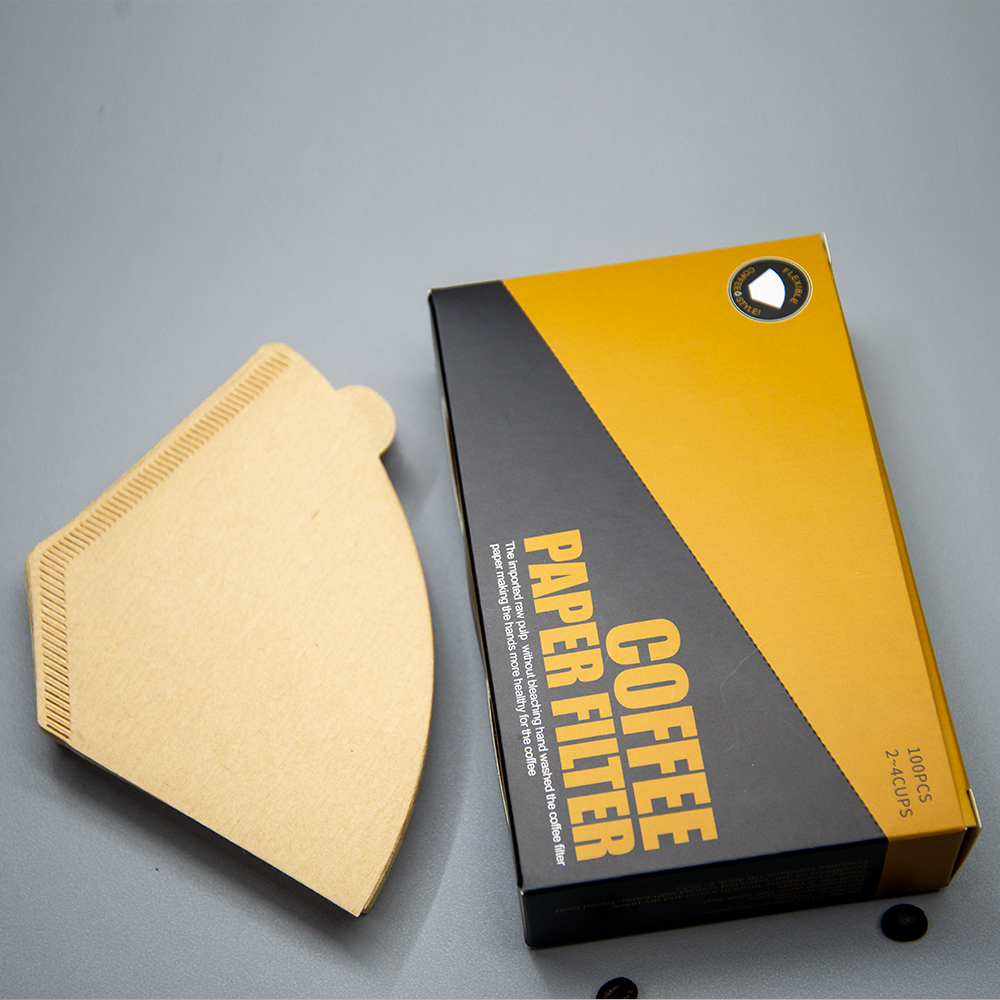As the popularity of coffee continues to rise around the world, coffee filter selection has become an important consideration for casual drinkers and coffee connoisseurs alike. The quality of the filter paper can significantly affect the taste, clarity, and overall experience of your coffee. Among the options available, both imported and domestic coffee filters have distinct advantages and differences.
Material quality
One of the main differences between imported and domestic coffee filters is the material:
Imported coffee filter paper: Imported coffee filter paper is usually made of high-end materials such as high-quality virgin wood pulp and is known for its consistent quality. Brands from countries like Japan and Germany are known for their meticulous manufacturing processes, producing filters that are extremely durable and provide smooth, clean extractions.
Domestic Coffee Filters: Domestic filter papers, especially those made in China, have improved significantly in quality over the years. Many domestic manufacturers now use high-quality wood pulp or a blend of natural fibers. However, there are still differences in the consistency and performance of these papers, depending on the manufacturer.
production standards
The production standards of imported and domestic coffee filters are also different:
Imported Coffee Filters: Many imported coffee filters are produced in facilities that adhere to strict international standards, such as ISO certification. This ensures the paper is free of harmful chemicals and additives, providing a pure and safe coffee brewing experience. For example, Japanese filter paper is generally chlorine-free and highly tear-resistant.
Domestic coffee filters: Although domestic production standards have improved, they may not always meet the strict regulatory environment of countries with long coffee cultures. However, many domestic brands have begun to adopt international standards to ensure that their products are competitive in terms of safety and quality.
Price and accessibility
The price and availability of coffee filters may also be a deciding factor for many consumers:
Imported Coffee Filters: Imported coffee filters tend to be more expensive due to shipping costs, import taxes, and generally higher production costs in the country of origin. They are often marketed as premium products and, although widely sold online, can be difficult to find in local stores.
Domestic coffee filters: Generally, domestic coffee filters are cheaper and easily available in local markets. This makes them an attractive option for everyday use, especially for consumers who prioritize cost-effectiveness without sacrificing too much quality.
environmental impact
The environmental impact of coffee filter production is increasingly of concern to consumers:
Imported coffee filters: Some imported coffee filters are made from sustainably sourced materials and may be certified by organizations such as the Forest Stewardship Council (FSC). Additionally, many products are produced using environmentally friendly processes, such as oxygen bleaching rather than chlorine bleaching.
Domestic coffee filters: The environmental impact of domestic coffee filter production varies widely. Some manufacturers have begun to adopt sustainable practices and materials, while others may still use less environmentally friendly methods. Consumers should look for certifications or specific product claims indicating the use of sustainable practices.
Brewing performance
The ultimate test of any coffee filter is its performance during the brewing process:
Imported Coffee Filters: These papers are often praised for their ability to produce a clean cup of coffee with minimal sediment. They tend to have precise pore structures to control flow rates, allowing for optimal coffee flavor extraction while preventing over-extraction or clogging.
Domestic Coffee Filter Paper: Depending on the brand, the performance of domestic filter paper can be comparable to that of imported filter paper. However, some users may notice differences in flow rate or the presence of fine particles in brewed coffee. It is important to choose a reputable domestic brand to ensure a satisfactory brewing experience.
in conclusion
When it comes to choosing between imported and domestic coffee filters, it ultimately comes down to your specific preferences and priorities. If you value consistent high quality, environmental considerations, and are willing to pay a premium, imported filter paper may be your best choice. On the other hand, if you are looking for a more cost-effective option that still offers good performance, domestic coffee filters are a great option.
Both options have their merits, and with the quality of domestic products continuing to improve, coffee lovers now have more options than ever to meet their brewing needs.
Post time: Aug-30-2024
